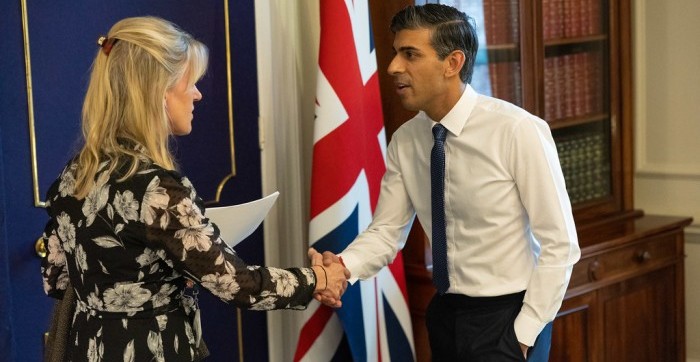The NFU has called for the Government to act on the climate crisis, as Prime Minister Rishi Sunak meets other world leaders at COP28 in Dubai this week.
It is calling on the UK government to urgently implement practical, progressive policies that will support the net zero transition and help British farmers adapt to a changing climate, so they can continue to provide nutritious, climate-friendly food for people at home and abroad. This includes policies such as supporting carbon auditing on farms, standardising carbon calculators and investing in water management infrastructure.
As the sole representatives of British agriculture present at COP28, the NFU will be working with the World Farmers’ Organisation and other members of the Farmers’ Constituency to influence the negotiations.
In its own plan which outlines how British farming can transition to net zero by 2040, the NFU outlines three pillars around which it is urging the government to focus its policies:
-
- Improving farming’s productive efficiency
- Increasing land-based carbon capture and storage
- Boosting renewable energy and the wider bioeconomy
NFU Deputy President Tom Bradshaw said: “Climate change is one of the biggest threats to global food security. More and more, farmers and growers across the world are facing severe weather events of drought, fires and flooding. As we speak, some British farms are still under water from the recent storms.
“Every year at COP, many policy conversations take place and many commitments are made. These are very important, but they have to lead to support for practical action on the ground.
“Take water as an example – our most precious resource. In the UK, we often have too much, yet outdated infrastructure does not enable us to easily store water for when we have too little. We need urgent investment in water management, both to protect farms and homes from flooding and to ensure water for food in times of drought.
“Farmers across the country are also ready and willing to help alleviate the risks of extreme weather events on their local communities, but they will need support to do this. Many farmers play a crucial role protecting nearby towns and villages from flooding by holding water on their land, and this public good has to be recognised and rewarded.
“British farmers can and want to be part of the solution. But we need the right government policies in place to help farm businesses invest in a sustainable future.”




